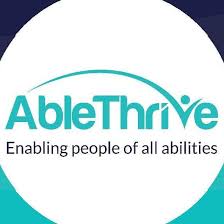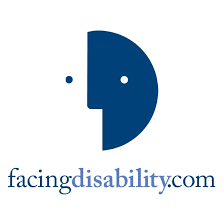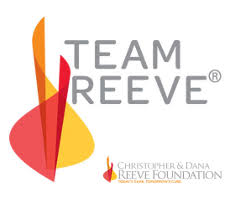|
On September 17th, Team USA paraded into Beijing's Bird’s Nest.
At the 2008 Beijing Paralympics, 547 athletes from 62 countries competed in 141 medal events. All the countries assembled, and we watched more stunning performances that created magnificent scenes with thousands of performers, young and old. As the Closing Ceremony ended, athletes danced with performers on the stadium floor, and Beth found herself blue eyes to bellybuttons with pink cows. The cow costumes caused visual problems for the wearers. “After Closing Ceremonies,” Beth wrote, “at least a hundred of these cows stormed the floor of the stadium. They kept running into us and running away. They would also begin to deflate, so volunteers would run up and herd them off the track to get blown back up. My teammates and I were literally crying we were laughing so hard.” Back home, the U.S. Paralympics team joined Michael Phelps and the other Olympians to meet President George W. Bush at the White House. Beth shook the President’s hand and smiled for the pictures. Later, athletes congregated at the hotel lounge. Flirting with Olympians on the men’s swim team marked the official end of Beth’s four-year plan and the Beijing experience. Real world adventures in Beth’s future would be equally exciting. Next: October's Serendipity Newsletter!
6 Comments
An important decision needed to be made.
Beth heard back from graduate schools. With acceptance letters from three law schools and Harvard’s Ph.D program at the School of Public Health, she narrowed down the decision to Georgetown Law in Washington, DC, or Stanford Law in California. The idea of going to graduate school in an unfamiliar place appealed to Beth, since she expected to work in DC after law school. She selected Stanford without ever visiting the campus, since she had no open weekends prior to the decision deadline. She wasn't concerned. A great school, great weather, and great outdoor pools. How could she go wrong? Beth accepted at Stanford Law, then promptly and officially deferred law school for one year, as planned four years before with Peggy. Nothing would interfere with her month in Beijing. Beth’s happy news about Stanford coincided with bad news for John. The first-year teachers in Newton received pink slips. Their contracts would not be renewed because of major budget cuts. We couldn’t believe it. He had National Board Certification, stellar evaluations, and 31 years of teaching experience, but only Newton seniority mattered. I updated his resume and helped him apply for teaching jobs while he finished the school year. He interviewed in Waltham and South Boston. At the end of April, I met Beth at the new pub under Harvard’s Annenberg Hall. A packed crowd gathered to launch SPINALpedia, the new disability project Brittany co-founded with Josh Basile. The band Braddigan performed at the event. Beth spoke to the crowd along with another friend and two other quads, including Brittany’s dad. “My goal was to create a support resource that uses the power of people’s experiences to motivate people with new injuries to adapt their lives,” Brittany said. The band’s lead singer, Brad Corrigan, added, “As a musician, I love stories that are real, and there’s nothing more real than someone sitting in a wheelchair, saying that there’s always hope.” During the concert, a stranger tripped and accidentally knocked Beth’s chair over backward. I moved across the room to help, not worried. She had tucked her head safely forward as she fell, chin to chest. Brittany pushed everyone out of the way, including me, before lifting Beth off the floor and back into the wheelchair. Apparently, this had happened before, and Brittany managed the situation to deter anyone inexperienced or drunk from helping. Beth teased her, and Brittany apologized to me, but there was no need. Why would I object to someone looking out for my daughter? With SPINALpedia successfully launched, the website followed, with video clips sharing individual experiences with paralysis. Next: Florida and England! Unwelcome news arrived with the updated IPC World Rankings. Three S3 competitors from Asia, all teenagers, entered the rankings for the very first time. All in the top five. All newly classified. It was a very rare situation. Beginning S3 swimmers usually entered the rankings in the double digits, not the top 5. Then, it usually took years to train with coaches, improve, and earn a top ranking.
There appeared to be two possible explanations: the swimmers had trained for years and not competed (again, for years) OR, they had more physical function than other S3s, a classification fail. Either way, the three brand-new swimmers bumped Beth down the women’s world rankings list from seventh place to 10th in the 50 free and from eighth place down to 11th in the 50 back. Four years before, Beth set a realistic goal to medal in Beijing, particularly in the 100 free. She placed third at the World Cup repeatedly and also earned four medals, including gold, at the Parapan American Games in Rio. Even with the S3 events cut to two sprint races in Beijing, earning a medal at the Paralympics had been attainable--until three new crazy-fast beginning swimmers suddenly grabbed top spots in the S3 World Rankings. Beth’s chances of medaling immediately dropped from possible to impossible. Yet, there was no turning back. I struggled to let go of the disappointment. Beth and Peggy accepted the news and carried on. The new modified and unspoken goal? To make finals (with a top eight swim during morning prelims) in at least one event and to hit the difficult time in the 50 freestyle to earn a new S3 American Record. Swimming workouts reached new heights of intensity. Next: My new life in Massachusetts and Beth’s last months at Harvard! (Signed copies of my memoir, Struggling with Serendipity, are available at bit.ly/memoiroffer) I flew with Beth over Boston Harbor into Logan airport. John picked us up, and we dropped our daughter off at her college dorm with only weeks left in her last semester. The next goal? Her first tattoo. Since she couldn’t swim for a few days after the inking, she’d planned the timing perfectly, immediately after a big meet and right before her next training cycle.
It would be the last time two days passed without a long pool workout until after Beijing. The day after the team announcement in Minneapolis, I held Beth’s leg down firmly at a tattoo parlor in Harvard Square. Her leg protested the needle and bounced with involuntary spasms. She chose a two-inch design on her upper left thigh of the new U.S. Paralympics symbol of a bold blue star with three waving lines of color below. The star turned out flawless despite a moving leg. We shared Beijing details with Maria over dinner at Bertucci’s in the Square. And of course, Beth showed her sister the new tattoo. A clear and bright reminder of success. Both of Beth’s elbows swelled for the first time as she started her most intense training cycle with a focus on the forward freestyle, consistently faster than the backstroke after six years of practice. A doctor prescribed a strong anti-inflammatory at a high dose. Hit with a piercing, unrelenting headache, Beth called the doctor. He ordered an MRI for the same day. I drove her to the test, relieved I lived close instead of in Ohio. I’d never seen her in that much pain before. Fortunately, the test results came back normal, and her symptoms gradually disappeared when she stopped the prescription. Newspapers in Massachusetts and Ohio printed articles about Beth’s upcoming Beijing trip. Her swim coach, Peggy, said, “Beth’s talents lie in her ability to set goals, both short and long term, overcome obstacles, and accomplish those goals while consistently maintaining a positive and fun attitude.” (Interested in a signed copy of Struggling with Serendipity? Click HERE!) Beth and I flew together to Minneapolis the first weekend in April. At the Trials meet, she would probably earn a spot on the Beijing team. Even so, nothing was guaranteed.
Everything hinged on how fast she swam in the next three days. We welcomed Coach Becca to her first Paralympic meet. She met Peggy after emailing back and forth about training goals and workouts for almost two years. Beth laser-focused on swimming fast. No shopping at the Mall of America in the afternoon as she did at her first Minneapolis meet five years before. From the upper tier seats, I wrote to-do lists with end of college details and watched races. A young girl from the United States in her early teens swam as an S3, newly classified. She didn’t make finals cuts, like many at their first national meet. Judging from her expression, she saw the possibilities as Beth had six years before. No one had any way of knowing the new swimmer would be reclassified to S2 and S1 in the future, caught in the vague criteria of the low-numbered classifications. However, I had no doubt she’d be at the next Paralympic meet, getting faster and making more new friends. The morning after Trials, the ceremony to announce the Beijing Paralympics team filled the pool lobby. They called out names randomly, not alphabetically. The swimmer or coach moved through the crowd to be congratulated at the front. Each received a red, white, and blue hockey jersey with USA on the front and their last name sewn on the back in large letters. As the number at the front grew, I questioned my expectations. Beth glanced my way, and I responded with an encouraging smile. Then Peggy stood at the front with the team. Hearing my daughter’s name a minute later, we all shared a wave of relief and elation. Beth put on her hockey jersey with Kolbe in big letters on the back. As cameras flashed, she never stopped smiling, basking in the achievement of her four-year goal. To share the good news, I talked to John in Waltham while Beth called Coach Becca who had left the day before. Faithful to our tradition, we outlined Beijing plans with Peggy over scoops of chocolate ice cream. Next: Tattoo! p.s.- My new book, Struggling with Serendipity, is available everywhere books are sold. Top 100 on Amazon in two categories, thank you! :-) In mid-December, my oldest daughter packed a suitcase for her flight to Boston after her last day of student teaching in Tiffin, Ohio. Maria had applied for teaching jobs and followed up with direct phone calls to ask for an interview. Her assertiveness, a skill I struggled with, landed her an interview in Cambridge.
Maria flew by herself for the first time into Logan airport. She slept on a futon chair in Beth’s dorm room and rode the subway by herself to the interview. Maria tapped into her passion for teaching children with disabilities. After, the sisters met for dinner at Bertucci’s in Harvard Square before they flew home together. A few days later, Maria accepted the job as a lead teacher in the Cambridge Public Schools’ Special Start program for preschoolers with a disability. The position would begin in a few weeks, in early January. I was proud of her and excited for her, though I also would miss her. Maria had decided to be a teacher when she was a preschooler. At her first library story hour with no parents, the librarian told me how Maria found her way onto the storyteller’s lap. At home, her little sister Beth was her student. In grade school, Maria loved to help in her dad’s classroom during summer school. Maria declared that we would live together forever in our Tiffin home, happily-ever-after. A decade later, she planned her move to Boston while John and I prepared to sell the only home our kids had known. Our last Christmas living in Ohio embraced nostalgia. We watched The Princess Bride, again, and made popcorn. We played N’Sync Christmas music while we wrapped presents. Ben visited, and we laughed at old videos the girls called “baby tapes.” One of our favorites showed Ben, 5, pulling his little sisters on a blanket around the dining room table. A giggle fest. The video captured a perfect silly afternoon. At the Vermilion farmhouse for Christmas, we connected with extended family and met new babies. Beth rang in the New Year with her best friends, Lizzy and Ellen, for the last time. It was a recap of fondue and favorite movies, including Elf and the Grinch. They still laughed so easily. I admired the young women they’d become. Next: A New Beginning! (This blog tells my family's story. To see more, click "blog" at the top of this webpage.)
In late April, Beth and I flew to Michigan for the Second Annual Disability Open. Her goal was to officially get back on the U.S. Paralympics Swimming National Team, since she had temporarily lost that status by declining her spot for the Greece Paralympics. “I heard stories from the other swimmers,” Beth said, “but I don’t have any regrets. I knew I’d have more chances.” She happily reunited with Coach Ewald and other friends on the pool deck. Her fan club watched. My parents, John, Ben, and his girlfriend traveled from Ohio to join me in the upper stands. (Maria had to work that weekend.) Everyone in our family showed an interest in Beth’s swimming, but Ben shared the understanding of intricate details of classification, competitors, rankings, and records with Beth and me. I fervently hoped Beth regained National Team status, but not to be pushy or to brag. I simply wanted what she wanted, whatever was important to her. Wearing a Harvard swim cap, Beth swam the 50 butterfly in record time, but was disqualified. International Paralympic rules required air space between the elbow and the water for the butterfly, which she could do, but not every stroke. After the 100 freestyle, she touched the wall just tenths of a second under the needed qualifying time for the National Team. And reset her American Record. Beth beamed when she saw the time on the scoreboard, then waved at us in the stands while we hooted and hollered. Despite the chilly spring day, the post-meet tradition of ice cream carried on at a Dairy Queen, ending with long goodbye hugs with Peggy and the rest of Beth’s fan club. I wished John could return to Massachusetts with me, but he had to teach until the end of the school year in our Ohio hometown. Back in Cambridge, Beth signed up for the housing lottery with two friends. No personal care assistant. All of the freshmen living in Harvard Yard moved the next school year to one of the upperclass houses. The lottery worked a little differently for Beth since the only accessible options were in the Quad, the housing farthest from the main part of the campus. She would live in a dorm with multiple elevators. Newer elevators. Her dorm suite would have an accessible bathroom. A dining hall in the dorm added another advantage. I would be no longer needed in Massachusetts when Beth started her second year of college. I was proud of her and I fully appreciated her rare accomplishment of independence as a quad—but not the 700-mile separation approaching in the fall. Next: Beth’s First Overseas Trip! (This blog tells my family's story. To see more, click "blog" at the top of this webpage.)
Beth’s roommate returned to the dorm from India. Rakhi shared sad stories about her volunteer work with children who were orphaned in the late December earthquake and tsunami. The tragedy killed more than 230,000 people in fourteen countries. Living in Cambridge, a truly international city, I felt more connected to a big world than I had in Tiffin, Ohio. About three weeks after the blizzard, Beth’s car still sat encased in snow and ice up to the windows. Snowplows clearing the street piled up extra snow on one side. An announcement from the city of Cambridge incited panic. Officials would begin to ticket cars that had not been moved since the winter storm. The next morning, crowds of people attempted to free their cars all over town. I tried my best, but half an hour later with little progress, I paid two teenagers to help who had chipped ice away from the wheels of another car. Spring couldn’t arrive too soon. A new semester packed Beth’s days with classes, volunteering, swimming, ongoing assignments, and a heap of books. Her first semester grades, all B's and A's, calmed her fears of not belonging at Harvard. She didn’t stress about breaking her all-A streak from high school. College life challenged her with the daily basics, so she prioritized her time and avoided social activities. With early morning swim practices and late night studying, she took advantage of breaks between classes for power naps. Beth made an attempt to take care of herself through her toughest winter. The continuous scrapes on her legs and feet from the pool walls healed slowly. She put waterproof bandages on the worst ones. When a cold surfaced, she treated it seriously to avoid chest congestion and pneumonia. She followed her lung doctor’s advice with decongestants, extra water, and more sleep. Swimming maximized the impaired lung capacity caused by her injury, but when she caught a cold, she still had a small, weak cough. She discontinued the last of her asthma medicine, Advair, with no return of symptoms. Since her leg spasms lessened with frequent swimming, she stopped taking a muscle relaxant. Except for a round of antibiotics now and then, she appreciated being medication free. . . . A rare thing for someone with a spinal cord injury. The college swim team season ended in February with the Harvard Women’s Swimming team as the undefeated Ivy League Champions. When team practices stopped for the rest of the school year, Beth focused on her four-year swim plan and continued to practice religiously. She grounded herself at Blodgett pool. Next: An Astonishing Invitation! (This blog tells my family's story. To see more, click "blog" at the top of this webpage.)
Later in June, the Greece buzz abruptly fizzled. A phone call from the head of U.S. Paralympics overruled the earlier plans at Trials. He told Beth all swimmers must stay the entire month of September in Athens. No exceptions. She handed me the phone at my request and I attempted to reason with him. When I hung up the phone, we hugged and cried. If only I could make things better, a wish I had made many times. The phone call triggered a decision Beth had made months before. She would not wait a full school year to start college at Harvard, so she immediately gave up her slot on the Athens team to someone else. The fun preparations ended, replaced with the chore of telling family, friends, and reporters the bad news. We tried to focus on the silver lining. Now, she could start at Harvard on time and attend freshman orientation. Discouraged, Beth followed Peggy’s advice and set goals for the next four years. The plan included staying on the U.S. National Team, attending at least three Paralympic meets a year, and swimming on her own at Harvard, following Peggy’s workouts. Beth didn’t expect to practice with the college’s swim team. In four years, she did expect to master the forward freestyle and achieve an out of reach American Record in the 50 free, the hardest in the S3 women’s classification. Beth’s detailed plan led up to an ultimate goal: the 2008 Paralympics in China as a member of Team USA. The Beijing Paralympics would take place in September, a few months after her graduation from Harvard. She would attend graduate school for medical research or law. “I’ve already decided to postpone grad school for a year,” Beth told a reporter in 2004. “Nothing’s going to stop me this time. I want to medal in China.” (This blog tells my family's story. To see more, click "blog" at the top of this webpage.)
Beth’s excitement grew with speaking engagements in Toledo and Tiffin plus interviews for two newspapers. She started a Road to Athens journal with her top three goals for the Greece Paralympics. “First, swim my best and feel good about races. Second, swim in finals one night. Third, have fun with the U.S. team.” The newspaper articles about Beth focused on inspiration, a label she disliked. In her mind, she lived her life the only way she could. In my mind, the word “inspiration” meant different things, some good and some not-so-good. At its best, inspiration motivates in positive ways. At its worst, it insults and exploits. What label would reporters choose if more people with disabilities had a fighting chance, with better support, education, and opportunities? With the Paralympics approaching in September, school schedules would keep the rest of my family home. I researched expensive overseas flights to Greece, as well as hotels. The last hectic month of high school barreled by. For prom, Beth wore a blue chiffon dress that fell below her knees. She sat in her wheelchair with the ends of long ribbons tucked under to avoid a tangle in the wheels. Maria styled her sister’s hair into a fancy "do" with small, shiny barrettes. Beth, Ellen, and Lizzy pretended to be ultra-serious models as they posed for silly pictures before the dance. High school ended in an anti-climactic way, with more important things ahead. At graduation, Beth wheeled up a ramp to the stage at the stadium and spoke to the crowd as one of four valedictorians in the class of 226 students. Ellen, also a valedictorian, gave a speech about how others change our lives. It reminded me of Beth and the song For Good, my favorite from the musical Wicked. On a whim, I bought tickets to see Wicked on Broadway later in the summer with my girls, and planned a road trip to New York City. None of us had ever been to The Big Apple. Another first—one that would establish a new favorite destination. Next: Graduation Celebrations! |
Cindy KolbeSign up for my Just Keep Swimming Newsletter by typing your email address in the box. Thanks!Categories
All
Archives
November 2022
|


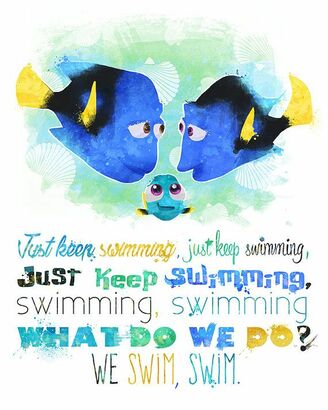
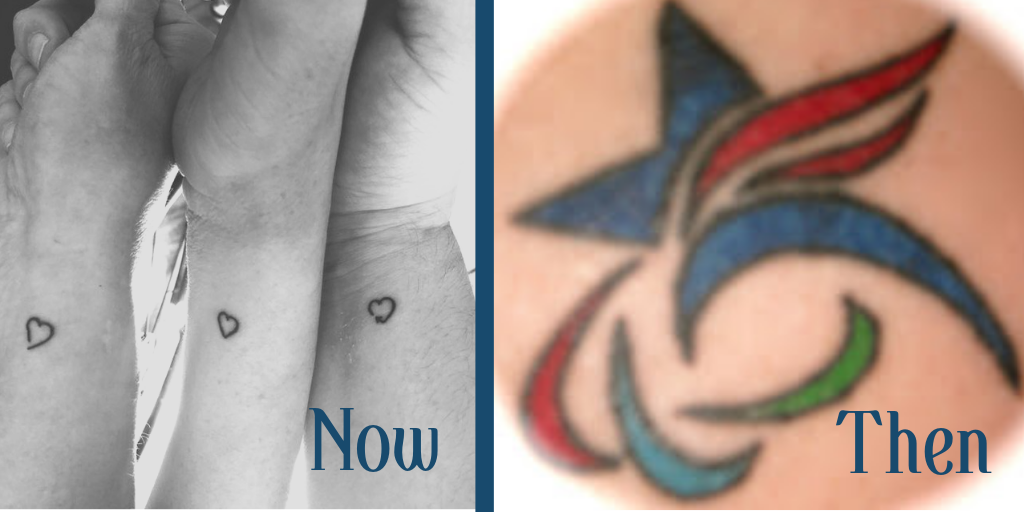




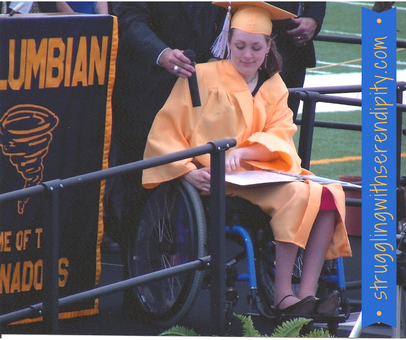

 RSS Feed
RSS Feed





